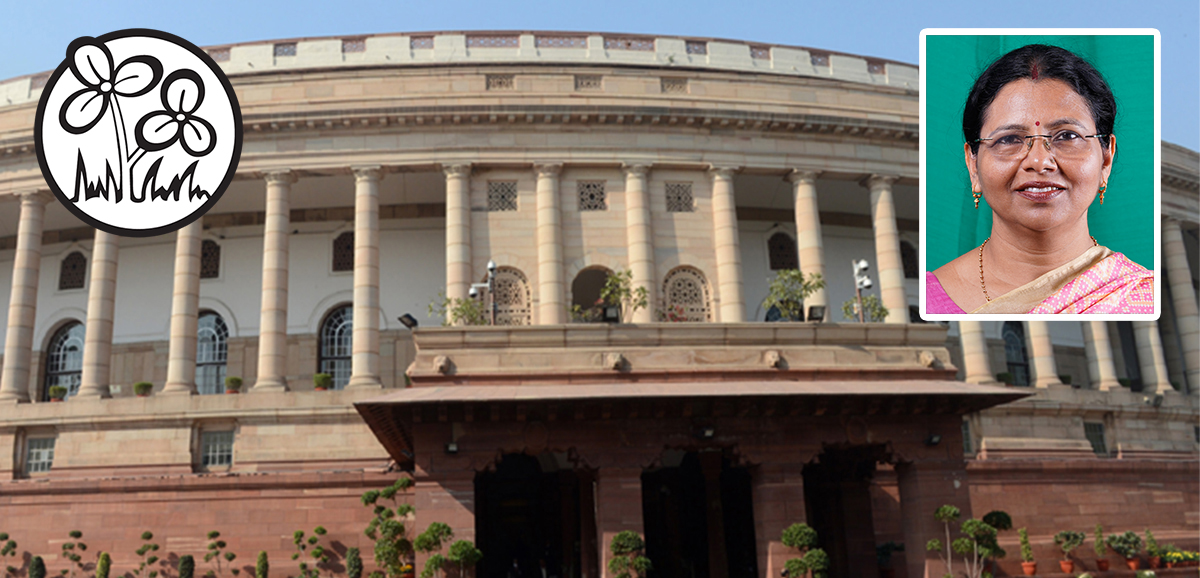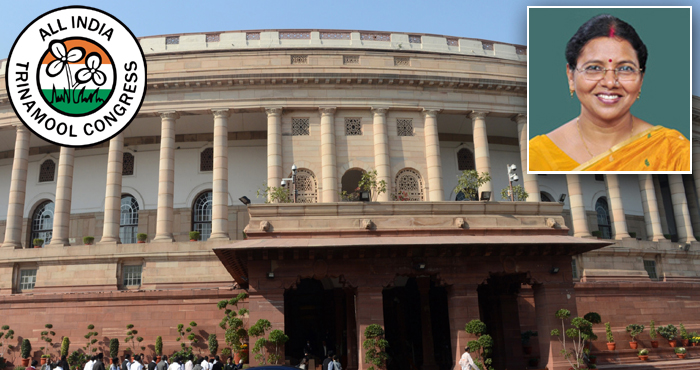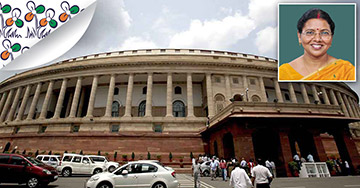FULL TRANSCRIPT
India has emerged as a superpower, something that is alerting those involved in the hegemonistic balance of power. But the largest democracy is still tainted with caste-based discrimination. There has been a 37 per cent increase in atrocities against scheduled castes and scheduled tribes in the past decade. This is very alarming; not just for prohibiting crimes, it is an urgent requirement for establishing grounds so that the vulnerable groups can be at par with the groups having privilege.
This amendment Bill is yet another effort to bring equality by reviving the 200-point roster as against the 13-point one, as put forth by the Allahabad High Court. The aim of the Bill is to consider a central educational institution as a unit, in place of department, to ensure proper functioning of the reservation system in direct recruitment of teaching faculty.
I take the opportunity to explain this as the public might be in a dilemma as to how this is beneficial. Rather than direct reservation, department-wise reservation will yield more employment. But this is wrong because the number of vacancies in each department will not be enough to support the reservation. Thus I appreciate this Bill.
But I would like to seek clarification from the Hon’ble Minister, through you, Madam, on the necessity of promulgating the Ordinance dated March 7, 2019. Article 123 of the Indian Constitution, as interpreted by Pandit HN Kunzroo, says that “if you deal with a situation where Emergency in the country necessitated an urgent action”. The process of UGC guideline 2006 was quashed by the High Court of Allahabad on April 7, 2007. Why didn’t the government introduce the Bill in the following session of Parliament? The Supreme Court also gave a similar verdict on January 23, 2019. The Parliament was in Session from January 31 to February 13, during which a historic Bill was passed. Then why didn’t the government make the effort to legislate on this important national issue?
Instead, an Ordinance was promulgated dated March 7, 2019, which was just three days prior to the announcement of elections. This cannot be a mere coincidence; it held a clear intention of attracting vote bank. Promulgating Ordinances time and again goes against the very nature of parliamentary form of governance. This House is composed of eminent and learned representatives of people. By promulgating Ordinances on every matter, the government is exhibiting an absolutely authoritarian streak. It is disregarding the inputs and views of this House and in this case, it has failed to include economically weaker sections in the Ordinance. This House sits to give better laws to India, by going beyond the purview of party politics. Therefore it should be given the importance and respect it deserves.
Now, coming to section 4 of the Bill, to clause (b) of sub-section (i), it is a valid point and is according to the fundamental rights of the minority communities. But sub-clause (a) provides certain institutions will be kept out of the provisions of the Bill. I would request the minister to explain the basis for selection of the institutions. As much as I could interpret, all of them have one thing in common – that all the institutes fall under the category of science and technology. By doing so, is the government again repeating the mistake of doubting the capabilities of the concerned category? When these universities have reservations for the student community, then why not for the teachers as well?
Sir, I would like to put forth a couple of suggestions. Firstly reservations should be allowed to universities that are excluded because if the criteria put by them is maybe by any candidate of the concerned section, then why not the opportunity be given to him or her? After all it is our fundamental duty to promote scientific temper in the society and what better by promoting the people who have been neglected throughout.
Secondly, a regulatory board should be constituted to ensure proper functioning of the provisions of the Bill and in case of any dispute it can discharge quick verdict. This is necessary because even after the Ordinance, four Universities, namely Central University of Punjab, Karnataka University, Tamil Nadu University, and Indira Gandhi National Tribal University did not comply with the provisions.
This would have gone unnoticed had it not been brought up by Shree Javed Ali Khan during Zero Hour in the Rajya Sabha. Now the resolution of the matter, as asked upon to do so by the Hon’ble Chairman of the Rajya Sabha, will take a lot of time, delaying the whole recruitment process, depriving the eligible. This is why a responsible body, to handle the affairs, is necessary. The body should also be entrusted with the duty of looking into the redressal matter arising after employment. This is because every other day we come across cases involving hatred towards vulnerable sections, concerning the Bill, namely Scheduled Caste, Schedule Tribe, Socially and Educationally Backward Communities and Economically Weaker Sections, doubting and questioning their capabilities.
There is a high change that the teachers will also face similar problems. A Hindi poet has put it in this manner. “Dafter main sab theek thak chal rahe tha phir Dalit hoon main bata diya sab ko”. In other cases like that which involves suicide of Rohith Vemula.
This is a very important step that the government can take steps and action. And it cannot be done until serious steps are taken.
Another young girl Payal Tadvi lost her life; Sukdev Tharav, a professor of JNU and former UGC chairman who headed the committee to investigate the allegation of discriminatory treatment against scheduled caste and scheduled tribe students at AIIMS had found that lower caste students faced disclination in everyday life at the primer Institution.
About the measures that should be taken to check the discrimatory behaviour, he said there has to be an act by the government to make caste discrimination at the university campuses a punishable offence. Apart from this a set of guidelines should be formulated for the upper caste students on how to behave in the presence of students who are from the marginalised sections.
Finally, I would like to conclude by saying that in order to ensure the compliance of Constitutional provision under Article 14, 15 and 16, the government must consider the suggestion and not just discard it.
Last I would conclude by quoting Sheetal Sathe, a young Ambedkarite – Nausea served on the plate:
The nausea is served in the plate , the untouchable nausea
The disgust is growing in the belly, the untouchable disgust
it’s there even in buds of flowers, it’s there even in sweet songs
that man should drink man’s blood ,
which is the land where this happens
which is the land of this hellish nausea.
Thank you, Madam.





